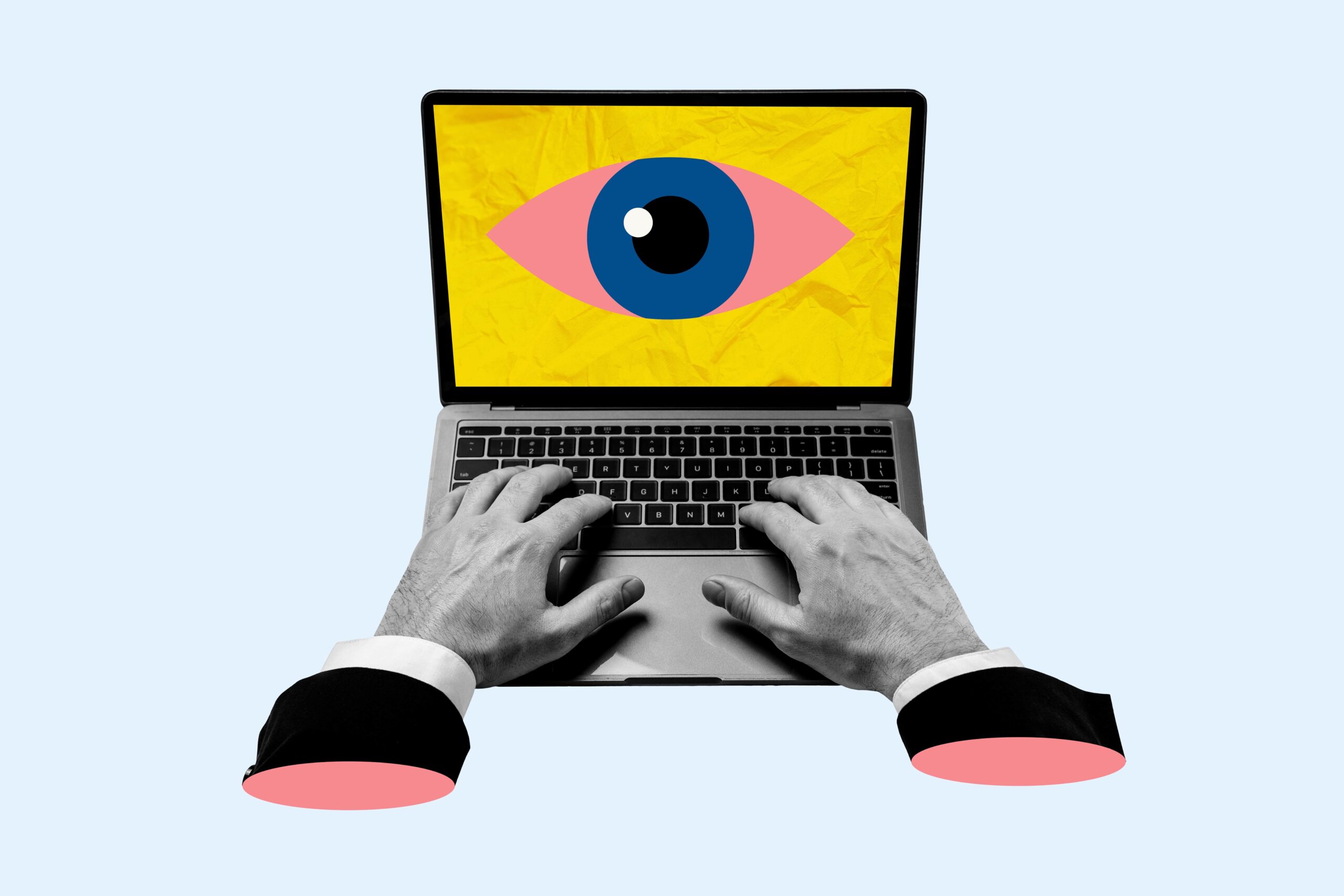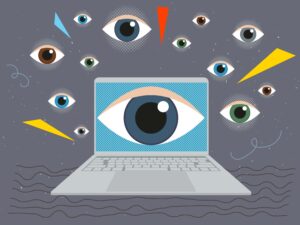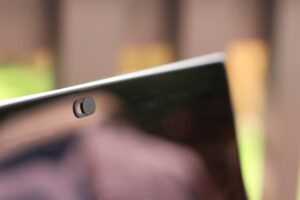With support solutions for the home and office, My Computer Works is here to help you get back to your life.
5 Signs Your Webcam has Been Hacked (and What You Should Do ASAP!)

Article Summary
- Review app permissions: Remove access from apps that don’t need your webcam.
- Webcam light comes on automatically: It may indicate unauthorized usage or eavesdropping.
- Unusual files discovered: Unrecognized images or videos might suggest that your webcam was accessed remotely.
- Slow computer performance: This may indicate the presence of concealed malware operating in the background.
- Antivirus notifications: Webcam alerts usually indicate that your software is blocking an attack.
Nowadays, webcams are more popular, considering every laptop has one. Individuals often use their webcams for everyday activities, like chatting to friends and family or sitting through work meetings. However, in the digitally connected world we live in now, digital privacy is important, especially if you use webcams regularly.
So, have you ever asked yourself, “Can my webcam be accessed by hackers?” Unfortunately, the answer is an affirmative yes. However, by knowing the signs and responding promptly, you can be better equipped against these intrusive cyber peepers.
Here at My Computer Works, we frequently assist clients concerned about computer safety, which extends to their web cameras. Let’s look at the signs indicating hackers are trying to spy on you.
Is it possible for hackers to access my webcam?
In short, yes, they can, as we previously mentioned. Cyber thieves employ several sneaky tactics to intrude into your computer and gain access to your webcam. One among them is the use of a Remote Access Trojan (RAT), a form of malware through which attackers can remotely manage your system.
After installation, RATs can remotely switch on your camera, capture images, and upload them back to attackers.
Other webcam attack avenues include phishing emails, infected downloaded software, and tactics that exploit obsolete systems. With this in mind, it makes sense to employ stringent computer security practices.
5 Signs Your Webcam has Been Hacked
Early detection of the signs that your webcam is being hacked can go a long way toward ensuring your privacy and will help prevent webcam spies from accessing your device.
If anything seems unusual on your computer, it is worth investigating to ensure it isn’t a webcam hacker. Below are five signs your webcam is being hacked and actions you should take immediately.
1. Unexplained Activity from Your Webcam Light
So, how can you tell if a webcam is hacked? It’s simple. When your webcam light turns on by itself, particularly when you’re not running any video software, it’s a sure sign that something isn’t right.
The light on your webcam will notify you that it is in use. If it flickers or glows for no reason, it may indicate that the camera is being watched.
Be careful, though: sophisticated malicious users can disable the indicator light, so while it is a useful indicator, it is not the only thing to consider when troubleshooting if a hacker has access.
2. Strange Files or Recordings Found on Your Device
Are you finding unusual video files or images that you have never made? If the answer is yes, it might be the work of webcam spying. Malware-using intruders install files in your computer’s default directories.
When you find unusual files on my computer, it is time to take action to stop hackers in their tracks. Go through your “Videos,” “Pictures,” or even your “Temp” folders for anything unknown.
3. Unusual Device Behavior or Performance Issues
Webcam hacking is not usually a standalone occurrence. It is often the culmination of a larger intrusion involving data theft and keyloggers, and you can spot this if you notice your computer showing unusual behavior.
Unexpected device behavior or performance problems, unusual behavior, such as lag, freezing, or your fan spinning loudly when you aren’t running process-hungry apps, can be a sign of malware. Additionally, excessive or high CPU usage with no explanation may indicate the presence of a sneaky running RAT.
It is important to scan for unauthorized webcam usage in combination with other system scans routinely to ensure a webcam hacker isn’t causing your unusual device behavior or system performance issues.
4. Warnings from Your Antivirus or Security Software
A good security software will notify you if an application attempts to access the camera. If your antivirus is blocking the use of a webcam, do not overlook it. It might be doing its job of detecting malicious activities.
If you need answers on how to find hidden malware because you suspect the webcam is compromised, your antivirus software can help. It can locate concealed malware and suggest how to eliminate webcam malware, providing an essential extra layer of defense for your installation.
So, check your antivirus and see if it’s the reason your web camera isn’t working. Then, take the appropriate steps. Also, check if your antivirus has this capability.
5. Unauthorized Applications with Camera Permissions
Over the years, we have all installed dozens of apps, many of which ask for access to the camera. If you don’t check those permissions, you may unwittingly permit the use of the webcam even when you’re not using it.
Social media apps, meeting software, and some games may misuse these permissions. To check this, you need to review your settings on Windows (under “Privacy > Camera”), or on the Mac (under “System Preferences > Security & Privacy”), and handheld devices on occasion, and remove unnecessary access.
How to Prevent Webcam Hacking and Protect Your Privacy
Here are some steps on how to block webcam access, as well as webcam security tips:
- Utilize an actual physical webcam cover as a form of webcam spying prevention. Such low-cost devices work amazingly well at protecting your device against prying eyes. Even regular opaque tape will discourage visual surveillance if you don’t want to buy a specific cover.
- Check for unauthorized webcam access. Regularly monitor app permissions. You need to be aware of blocking access to your devices’ webcams. In addition, be sure to always remove any permissions for an app you don’t regularly use or trust.
- Keep your software up to date. Those right-in-your-face update notices aren’t just there for kicks; they are there to keep you informed and up to date.
- Install reputable antivirus software. Search for software that can identify RATs and learn about remote access trojans (RATs) and how they work. Good antivirus software also assists in webcam security advice and malware elimination.
- Don’t click on suspicious links. Phishing remains the leading source of malware and RATs. So, try to be cautious when opening emails, pop-ups, and direct messages on social media.
- Be on the lookout for webcam malfunctions. If your webcam is frozen, won’t turn off, or is acting abnormally, you might be suffering from malicious code-induced webcam glitches.
Helpful sources such as StaySafeOnline.org, Cybersecurity & Infrastructure Security Agency (CISA), and Consumer Reports Tech Tips will assist you in staying current with best practices for webcam use and the latest threats.
The Wrap-Up on Signs Your Webcam Has Been Hacked
Your webcam is an entry point into your personal life, and alas, the bad guys know it. If you’re experiencing performance problems, seeing unknown files, or the light on your webcam comes on automatically, it should not be ignored.
At My Computer Works, we assist US users in improving their computer repair and security configurations. So, when you wonder, “How can I identify if my webcam is hacked?” or question the best course of action to remove webcam malware, our technicians are prepared to walk you through every process.
Don’t wait until your minor webcam worries turn into an all-out breach. Contact us here to get your webcam secure today with expert assistance, new tools, and digital smartness.





